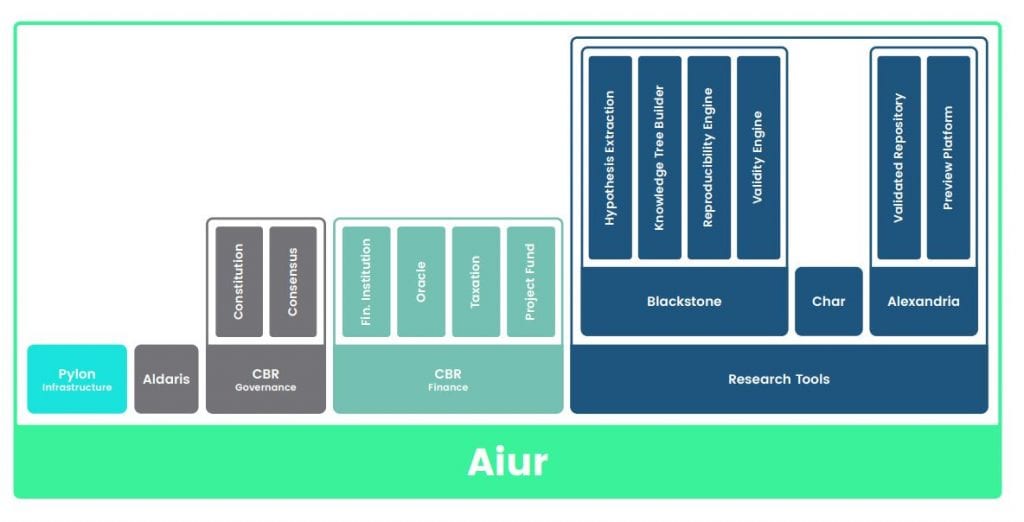As research in science progresses by leaps and bounds, there are a lot of readily available information in the online space, making knowledge sharing in areas like science easier.
However, there is so much research information available that it is sometimes confusing as to what is right and what is wrong. Given the vast amount of resources, it is essential to carry out in-depth analysis of the resources. This has been made possible with AI and ML innovations.
In this article, we discuss Iris.ai’s project Aiur (known as a Knowledge Validation engine), which leverages AI and blockchain technology to build an AI platform for knowledge sharing and provide an affordable access to information. Iris.ai is a company that provides AI related solutions in the form of a digital assistant that enable better research and development (R&D) productivity in published research.
Aiur is fully decentralised community-supported AI engine in line with the company’s mission to build a ML driven digital science assistant.
What Is Aiur?
Aiur is a sophisticated technical platform that has governmental, financial and research community tools powered with AI. At the heart of the platform is a research process facilitation framework which identifies scientific text, what the reader or user sees, source of the text and the reproducibility aspect. The framework takes scientific documents (technical papers/journal papers/survey reports) as input and presents an analysis of these documents.
To map these inputs, a hypothesis tree is also present in the output which relates to a knowledge database system alongside the platform. To achieve this, Aiur will have a number of subsystems, such as a knowledge validation system an AI training platform, infrastructure service, a dispute resolution engine, a distributed science repository and a smart contracts framework. The details of each subsystem can be found here. These subsystems are primarily categorised as setup & research tools and governance & financial tools.

How Aiur Overcomes Innate Challenges In Scientific Research?
In a white paper released by Iris.ai, the basis for developing the AI-engine is considered along five typical challenges evident in science as well as the surrounding research. The problems are described below:
- Information overload: The presence of scientific information available as a result of research is humongous, and is increasing day by day. It is estimated that around than 400,000 research articles are published for every year. This number is also growing thanks to easier paid access to scientific publications online.Although the rate of publications is high, this vast amount has reduced research quality due to massive reproducibility sometimes. This can be mitigated with Aiur. The AI-engine will filter relevant and factual content in the published papers and find out the right content for scientific discovery.
- Access barriers: One of the key problems in the research community is the right access to scientific information. At times, it is difficult to obtain relevant information mainly due to high cost of published papers or limited rights to access those papers. Iris.ai is an open platform, where scientific information or data is accessible to everyone in the community. With Aiur, it aims to provide an open access repository for users/scientists to read freely on the online space.
- Research reproducibility issues: The problem of replication in research has become common as a consequent of its growth. But, if this continues to happen on a higher scale, future research which depend on these reproduced research will be flawed. Academics suffer the worst in this case. Aiur would identify the novelty inherent in papers and scrutinise strictly for better content quality in the research.
- Built-in biases: Tools that aid in scientific research are built with a common keyword and citation based architecture, that present biases with new information as time passes. Keywords and citations are important when it comes to information dissemination. But, current search engines present research results without taking into account of the users’ knowledge and know-how towards a particular subject. Aiur tackles this by absorbing large volumes of relevant content, and provides a comprehensive easy-to-build citations.
- Incentive misalignment: The burden of delivering research outputs with tight deadlines has led researchers to overstate results as well as omit the appropriate assumptions in studies. This will drastically affect research quality. Aiur will reduce this problem by providing a platform for peer review, and support attractive rewards for researchers towards openness of the scientific content.
Conclusion
If all of these challenges are resolved perfectly, Aiur will become the primary AI tool for R&D. Furthermore, Iris.ai’s mission to make scientific information genuine and open access will be reinforced with this project. However, Aiur is still at a nascent stage, and as improvements are made, the project will become more feasible and easy to deploy across scientific communities for better groundwork.

























